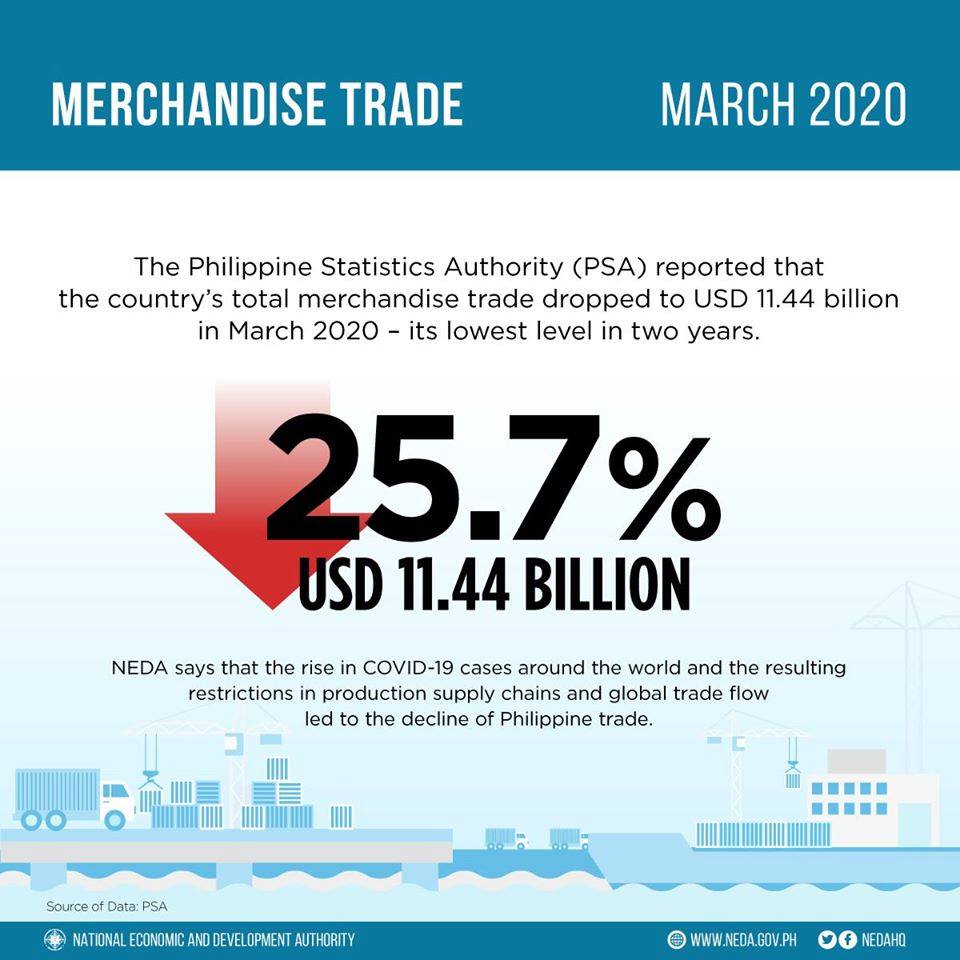
CEBU CITY, Philippines—The country’s merchandise trade registered a decline in March due to the coronavirus disease 2019 pandemic and the resulting restrictions in production supply chains and global trade flow.
This was revealed by the National Economic Development Authority (NEDA) quoting a report by the Philippine Statistics Authority (PSA).
According to the PSA, the country’s total merchandise trade dropped to US$11.44 billion, its lowest level in two years. This is 25.7 percent lower than the US$15.40 billion recorded in the same month in the previous year.
Both exports and imports registered declines of 24.9 percent and 26.2 percent, respectively, according to an emailed news release from NEDA.
“Merchandise trade may recover in 2021, but this will depend on how fast we can contain the spread of COVID-19 and mitigate its economic impact through government policies to support affected industries and workers,” Acting Socioeconomic Planning Secretary Karl Kendrick Chua said.
Chua encouraged export manufacturers to use digital technology and innovative approaches to continue operation and secure new markets as a way of improving the country’s trade performance.
“Firms will have to put in place alternative business processes that will become the new standards for engaging with clients, buyers, and suppliers,” he added.
Chua said that the export industry needs to be more responsive to the changes in consumer spending and redesign their product lines accordingly.
Among the things that firms need to consider are the needs and preferences of those working from home, in terms of garments, personal care, health equipment, and household tools, he said.
“We may see increased interest in advanced electronics and software for artificial intelligence, plastic products that serve as barrier for store fronts, and other protective equipment,” Chua pointed out.
He then cited the need for government policies to expedite the sector’s recovery with the health of the population in mind, which will be critical to the country’s trade upturn.
“We are working closely with Congress to craft an economic recovery program that is attuned to the needs of affected industries, particularly our small and medium enterprises, which were forced to scale back or totally close operations due to this unprecedented health crisis. The program will include highly targeted tax incentives that are time-bound, transparent, and performance-based to help us attract the right types of investments and help firms recover,” Chua said.
He explained that support measures in the form of wage subsidies and guaranteed loans are being considered for critically-affected export and import industries, including the supply chain.
These support could help increase focus on research and development on new products, recalibration of the production process, and development of innovative products, among others, Chua said. / dcb